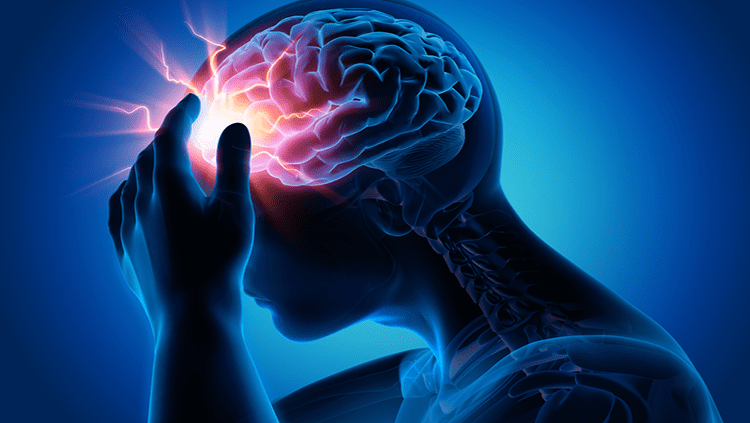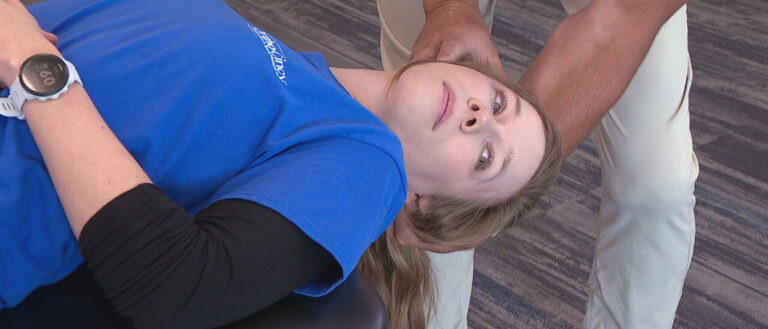
When Vision Feels Off: Recognizing Post-Trauma Vision Syndrome After Concussion or Car Accident in Kansas City
Many people in Kansas City experience lingering visual problems after a concussion or car accident, even when standard eye exams show no structural damage. This frustrating disconnect is often the result of Post-Trauma Vision Syndrome, a condition that affects how the brain and eyes work together after trauma.
What Is Post-Trauma Vision Syndrome?
Post-Trauma Vision Syndrome is a neurological condition that develops when the brain’s ability to process visual information is disrupted by injury. It can follow concussions, whiplash, sports accidents, or falls. Patients often report that their eyes are healthy, but they still struggle with daily tasks that require visual focus and coordination.
Symptoms That Signal Visual Processing Problems
PTVS can make everyday activities challenging and may mimic other post-concussion symptoms. Common signs include:
- Blurred or double vision, even if eyesight was normal before the injury
- Difficulty reading, losing your place, or feeling fatigued quickly
- Dizziness or motion sensitivity in stores, cars, or while scrolling on devices
- Light sensitivity that triggers headaches or discomfort
- Eye strain and headaches after screen time or detailed tasks
- Trouble with depth perception and balance, leading to stumbles or uncertainty on stairs
- Overwhelm in crowded or busy environments
- Delayed visual processing and mental fatigue
Patients in Overland Park, Lee’s Summit, Liberty, and throughout Kansas City often find these symptoms make work, school, and social activities much harder.

Why Vision Changes Occur After Brain Injury
The visual system is closely linked with balance, movement, and attention. After concussion or whiplash, even subtle disruptions can lead to oculomotor dysfunction, convergence insufficiency, and visual-vestibular mismatch. These issues are not visible on a standard eye exam, which is why many people go undiagnosed.
How Keystone Medical Group Identifies and Treats PTVS
David Buechner, MD and Managing Director Lance Stevenson provide comprehensive evaluations that include post-concussion visual screening. The assessment may involve:
- Eye tracking and focus tests
- Convergence and divergence evaluation
- Gaze stabilization and vestibulo-ocular reflex checks
- Sensitivity to visual motion
- Balance and sensory integration review
Treatment plans are customized and may include:
- Oculomotor and gaze stabilization exercises
- Visual-vestibular retraining
- Convergence training for reading and near work
- Balance therapy and sensory re-integration
If your symptoms require advanced care, we will refer you to a trusted vision specialist or neuro-optometrist for further evaluation and treatment.
Do Not Ignore Lingering Vision Issues
Post-Trauma Vision Syndrome can make everyday life feel overwhelming, but targeted therapy can help restore clarity and comfort. If you are struggling with vision or balance after a concussion, a thorough evaluation and personalized treatment plan can put you on the path to recovery.
Disclaimer
This blog is for educational purposes only and does not replace medical advice. If you have experienced a concussion or other injury, please consult a qualified healthcare provider.
References
Comprehensive Concussion Management in Kansas City
We provide a comprehensive concussion management program in Kansas City, addressing every stage of care from evaluation to therapy. Our approach begins with thorough assessments, including balance testing, oculomotor and vestibular evaluations, CNS Vital Signs neurocognitive testing, and advanced DTI imaging. With years of experience in concussion care, our multidisciplinary team combines cognitive rehabilitation, physical therapy, and mental health support to create a detailed understanding of each patient’s condition and needs.
Targeted therapies are tailored to address the wide range of concussion symptoms. From cognitive rehabilitation and balance training to oculomotor therapy and mental health interventions, every treatment is designed to support recovery and long-term well-being. Our experienced providers help patients across Kansas City, Overland Park, Lee’s Summit, and surrounding areas achieve safer, faster, and more complete recoveries.









